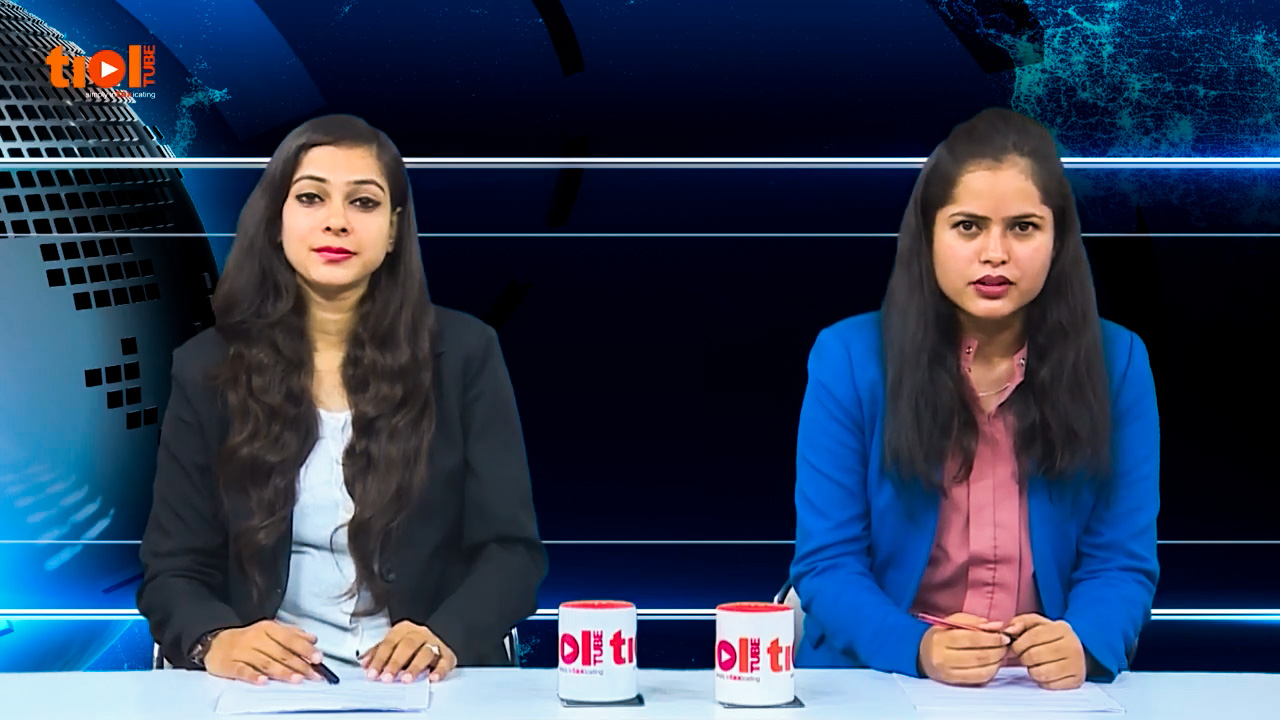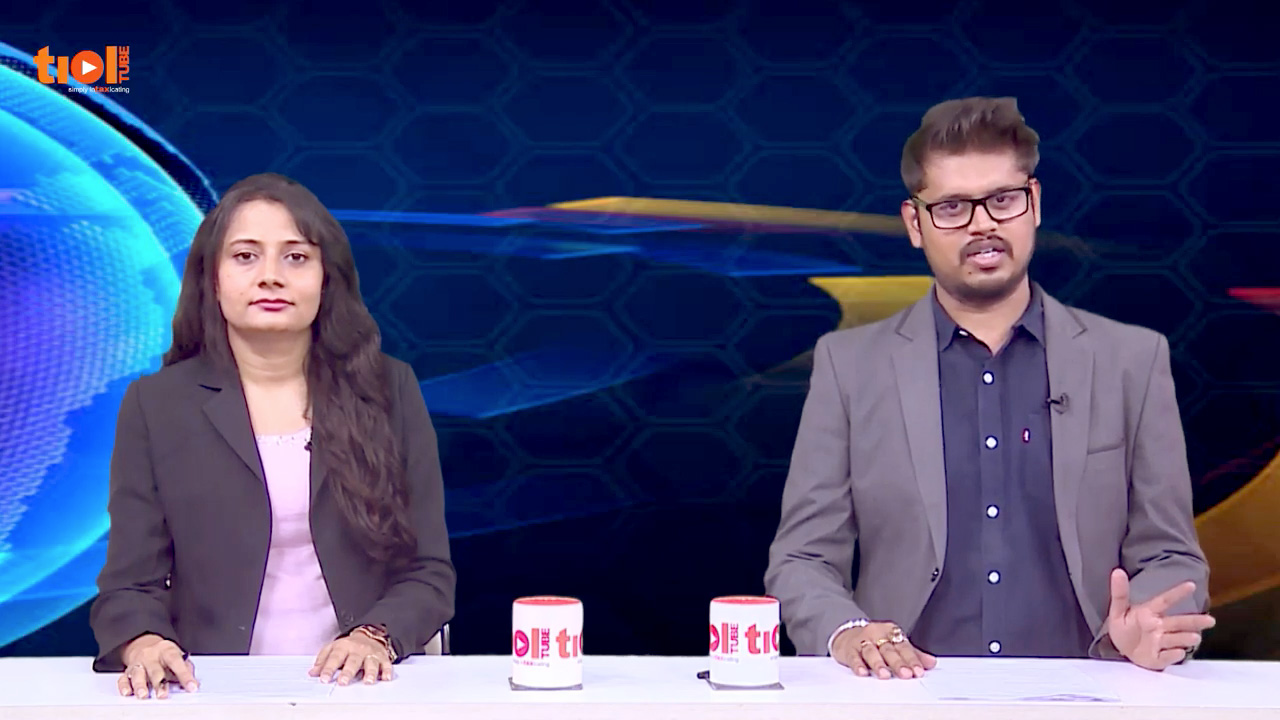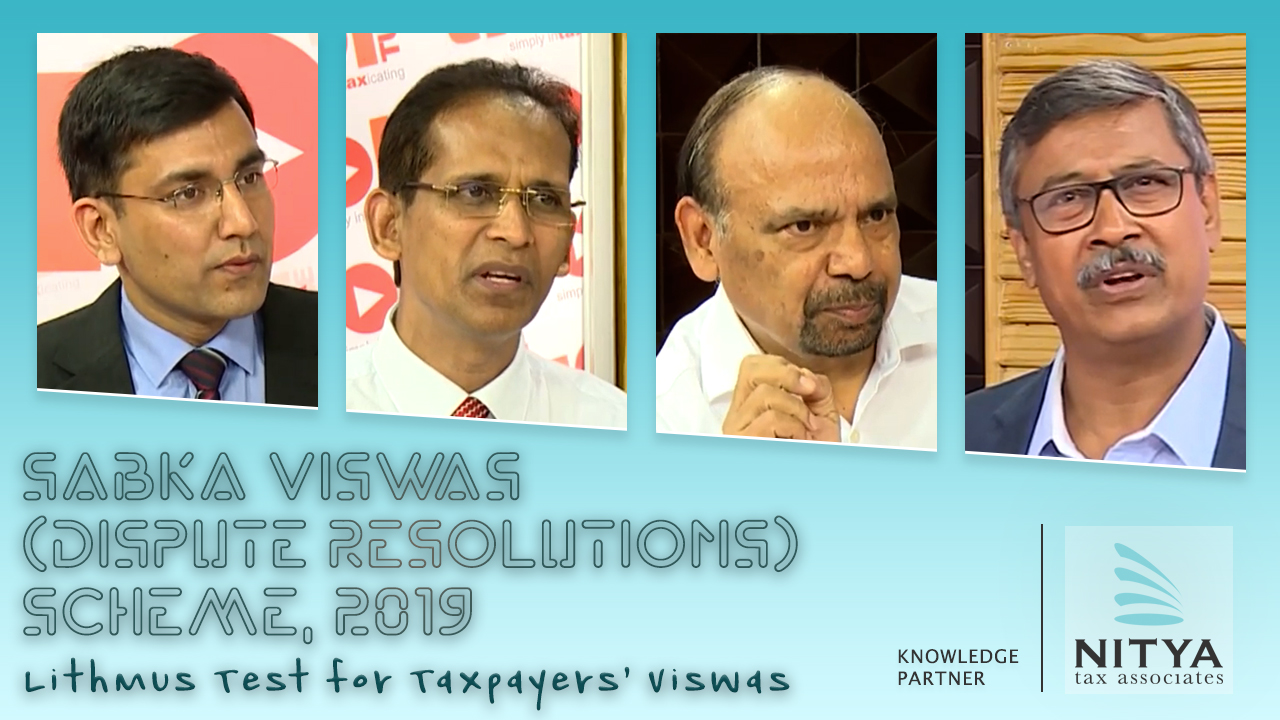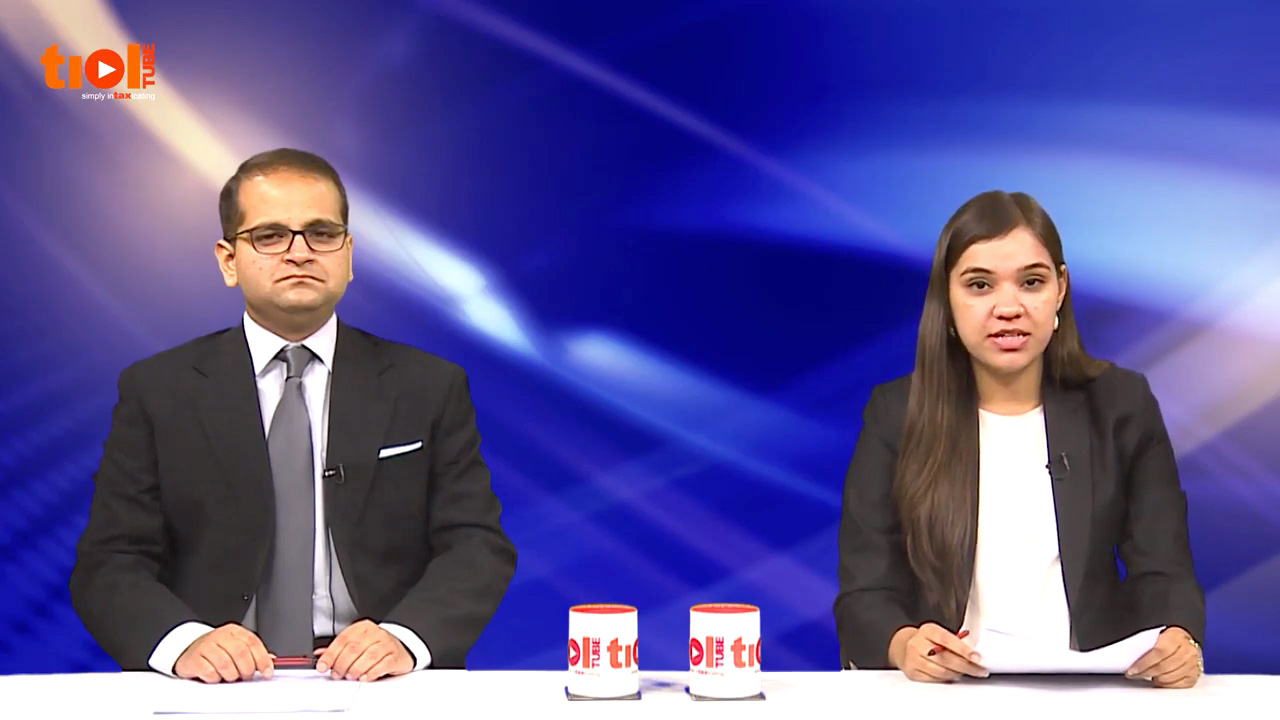| SERVICE TAX
2019-TIOL-426-SC-ST
CST Vs Grand Royale Enterprises Ltd
ST - The assessee is engaged in running hotels - The business assets of Hotel Connemara, Madras, Westend Hotel, Bangalore and Savoy Hotel, Ooty owned by Spenser & Co. were transferred at book cost to M/s. Spencer International Hotels Ltd. (SIHL) vide an agreement which also granted long term lease of land of said three hotels to the latter - Hotel Connemara undertaking was transferred to assessee by way of de-merger scheme approved by Madras High Court - Then, IHCL started paying license fee in respect of Connemara Hotel undertaking to assessee from 2009-10 onwards under the same conditions - As the "license fee" received by assessee was based on a certain percentage of the income from operations of hotel business, the Revenue opined that assessee rented out the immovable property for conducting hotel and other related business for furtherance of business or commerce against license fee, hence the assessee is liable for payment of service tax under "Renting of Immovable Property Service" w.e.f. 01.06.2007 - Later on appeal, the Tribunal noted that the agreement between assessee and IHCL was not merely for renting of hotel or land appurtenant thereto but is "license to run, conduct and operate Connemara hotel together with all the related facilities and business appertaining thereto" - It appeared to reason that not just the immovable property portion of the hotel, but also, the employees and other staff, goodwill and other paraphernalia are also taken into consideration by the two parties involved while framing the license agreement - No"fixed rent" was found payable as would be expected in a normal renting of immovable property transaction - On the other hand, the consideration for license to run, conduct and operate the hotel is a "license fee" equivalent to 15%/20% of the annual sales from the operation of the hotels - Hence, the license fee that would accrue to assessee was only a percentage of turnover - Since the turnover is never static but is dynamic and will go up or down in every succeeding year, the "lease license fees" would also wax or wane in resonance - Therefore, the transaction between assessee and IHCL was not one of "renting of immovable property" but a business transaction between the two, where the consideration is not like a regular rent but is dependent on annual performance and profits of the hotel - The demands were set aside - Hence the present appeal.
Held - Delay is condoned - Notice be issued to the parties - Matter be tagged with C.A. No.5734/2017: SC
- Notice issued: SUPREME COURT OF INDIA
2019-TIOL-2671-CESTAT-MAD
Kavithalaya Builders Vs CGST & CE
ST - The assessee is registered with Department for providing Construction of Residential Complex Services - They filed a refund claim on the ground that they were not liable to payment of service tax under said category as per the CBEC Circular 108/02/2009-ST - The Department was of the view that the Circular does not apply to the assessee and that the service tax has been correctly paid by them - After due process of law, the refund claim was rejected - It is not disputed that assessee had constructed 13 flats and had entered into construction agreement with 13 separate buyers - All the flats had enjoyed common facilities and therefore, the Department was of the view that the Construction would fall under Construction of Residential Complex Service as the individual units are more than twelve in number - Apart from these Circulars, the Tribunal in case of M/s. Real Value Promoters Pvt. Ltd. 2018-TIOL-2867-CESTAT-MAD has held that in case of composite contracts, the activity cannot be subjected to levy of service tax under category of Construction of Residential Complex Service (CRCS)/Commercial or Industrial Construction Service (CICS)/Construction of Complex Service (CCS) - For the purpose of verifying as to whether the demand is hit by unjust enrichment, the issue requires is remanded to the adjudicating authority, who shall verify the same - In the remand proceedings, the adjudicating authority need only look into the issue of unjust enrichment - In case the burden of tax has not been passed on to another, the assessee would be eligible for refund: CESTAT
- Matter remanded: CHENNAI CESTAT
CENTRAL EXCISE
2019-TIOL-427-SC-CX-LB
UoI Vs Unicorn Industries
CX - Question of law is as to whether, by invoking the doctrine of promissory estoppel, can the Union of India be estopped from withdrawing the exemption from payment of excise duty in respect of certain products, which exemption is granted by an earlier notification, when the UOI finds that such a withdrawal is necessary in the public interest - Notification 71/2003-CX dated 09.09.2003 exempted goods specified in the First and Second Schedule to the CETA other than the goods specified in Annexure-I to the said notification from the payment of duties under said statutes viz. Additional Duties of Excise (Goods of Special Important) Act, 1957 and Additional Duties of Excise (Textiles and Textile Articles) Act, 1978, which exemption was available to the units located in Industrial Growth Centre or Industrial Infrastructure Development Centre or Export Promotion Industrial Park or Industrial Estate or Industrial area or Commercial Estate or Scheme area, as the case may be, in the State of Sikkim - by notification 21/2007-CE the earlier notifications issued by it were amended and in terms of which the product ‘pan masala', tobacco and manufactured tobacco substitutes and plastic carry bags of less than 20 microns were included in the negative list and as such were no longer entitled for exemption from excise duty - aggrieved, the respondent approached the High Court of Sikkim and the High Court vide its judgment allowed the writ petition and held that the petitioner therein was entitled to exemption from payment of excise duty on the manufacture of pan males from its unit situated in the State of Sikkim for a period of 10 years from the date of commencement of the commercial production i.e. 27.06.2006 - similarly, the Appellate Bench of the Gauhati High Court allowed the appeals filed by Dharampal Satyapal Ltd. - being aggrieved, the Union of India is before the Supreme Court.
Held:
+ Issue raised in these appeals is no more res integra.
+ This Court in a catena of decisions has considered the issue with regard to inapplicability of the doctrine of promissory estoppel when the larger public interest demands so.
+ Court has clearly held that doctrine of promissory estoppel cannot be invoked in the abstract and the courts are bound to see all aspects including the objective to be achieved and the public good at large.
+ It has been held that while considering the applicability of the doctrine, the courts have to do equity and the fundamental principle of equity must forever be present in the mind of the Court while considering the applicability of the doctrine. It has been held that the doctrine of promissory estoppel must yield when the equity so demands and when it can be shown having regard to the facts and circumstances of the case, that it would be inequitable to hold the Government or the public authority to its promise, assurance or representation.
+ An exemption notification does not make the items which are subject to levy of customs duty etc. as items not leviable to such duty. It only suspends the levy and collection of customs duty etc. subject to such conditions as may be laid down in the “public interest”. It has further been held that, such an exemption by its very nature is susceptible of being revoked or modified or subjected to other conditions. It has been held that the supersession or revocation of an exemption notification in the public interest is an exercise of the statutory power by the State under the law itself. It has further been held that under the General Clauses Act an authority which has the power to issue a notification has the undoubted power to rescind or modify the notification in a like manner.
+ Withdrawal of exemption in public interest is a matter of policy and the courts would not bind the Government to its policy decisions for all times to come, irrespective of the satisfaction of the Government that a change in the policy was necessary in the public interest. It has been held that, where the Government acts in public interest and neither any fraud or lack of bona fides is alleged much less established, it would not be appropriate for this Court to interfere with the same.
+ It has been held that when withdrawal of the exemption is in public interest, the public interest must override any consideration of private loss or gain. In the said case, the change in policy and withdrawal of the exemption on the ground of severe resource crunch have been found to be a valid ground and to be in public interest.
+ It could thus be seen that this Court observed that once public interest is accepted as a superior equity which can override an individual equity, the same principle should be applicable in such cases where the period is prescribed.Where public interest warrants, the principle of promissory estoppel cannot be invoked.
+ It is more than well settled that the exemption granted, even when the notification granting exemption prescribes a particular period till which it is available, can be withdrawn by the State, if it is found that such a withdrawal is in the public interest. In such a case, the larger public interest would outweigh the individual interest, if any. In such a case, even the doctrine of promissory estoppel would not come to the rescue of the persons claiming exemptions and compel the State not to resile from its promise, if the act of the State is found to be in public interest to do so.
+ By a scientific research conducted by Experts in the field, it has been found that the consumption of pan masala with tobacco as well as pan masala sans tobacco is hazardous to health. It has further been found that, the percentage of teenagers consuming the hazardous product was very high and as such exposing a large chunk of young population of this Country to the risk of oral cancer. Taking into consideration this aspect, if the State has decided to withdraw the exemption granted for manufacture of such products, we fail to understand as to how it can be said to be not in the public interest. Therefore, reasoning arrived at by the Sikkim High Court is totally erroneous.
+ In these circumstances, the finding of the GauhatiHigh Court that the withdrawal of exemption for tobacco products was not in the public interest, to say the least, is shocking. We find that the approach of the Appellate Bench of the High Court was totally unsustainable.
+ We have no hesitation to hold that the withdrawal of the exemption to the pan masala with tobacco and pan masala sans tobacco is in the larger public interest. As such, the doctrine of promissory estoppel could not have been invoked in the present matter. The State could not be compelled to continue the exemption, though it was satisfied that it was not in the public interest to do so. The larger public interest would outweigh an individual loss, if any. In that view of the matter we find that the appeals deserve to be allowed. [para 12 to 39]
Conclusion:
Civil Appeal arising out of S.L.P.(C) No. 36926 of 2012:
++ The appeal is allowed. The judgment and order passed by the High Court of Sikkim dated 11.05.2012 is quashed and set aside.
Civil Appeal Nos. 2345 of 2017 and 2346 of 2017:
++ The appeals are allowed. The judgments and orders passed by the Appellate Bench of the Gauhati High Court dated 20.04.2016 and 25.05.2016 are quashed and set aside. The Order passed by the learned Single Judge dated 10.12.2010 dismissing the writ petitions is upheld.
- Appeals allowed: SUPREME COURT OF INDIA
2019-TIOL-2162-HC-KOL-CX
CCE & ST Vs Indian Oil Corporation Ltd
CX - The assessee has transported oil by pipeline from Bongaigaon to its Haldia refinery - Under the directive of Central Government, it was deemed to have received 76% of consideration for this service and paid service tax, accordingly - The balance 23% was payable by Haldia refinery, a unit of the assessee - The assessee submits that the service tax was payable on the amount received and not receivable - Since no amount was received, service tax was not paid - The lower adjudication authorities accepted this argument and did not entertain the demand - No reason found to interfere with that discretion: HC
-Appeal dismissed : CALCUTTA HIGH COURT
2019-TIOL-2670-CESTAT-MUM
Lalit Pipes And Pipes Ltd Vs CCE
CX - Appeal pertains to the non-discharge of duty liability on 'submerged arc welded pipes' to the extent of charges paid for outsourced inspection by agencies on the insistence of some customers - the dispute, during the period from February 2008 to October 2008, revolves around recovery of Rs.1.35 lakh along with interest at appropriate rate, and penalties under rule 25 of Central Excise Rules, 2002.
Held: 'Transaction value' is the price that is paid, or payable, for the goods procured by the customers - it is not in dispute that the testing agency, even if nominated by customers, is compensated for by none other than the appellant and that the amount is recovered from the customers as a cost of production and supply - it would, therefore, appear that the assessable value, as computed by the lower authorities, does reflect the transaction value - the decision of the Larger Bench of the Tribunal in the case of Maruti Suzuki Ltd. - 2010-TIOL-1127-CESTAT-DEL-LB, as approved by the Supreme Court plainly resolves the issue in dispute - in view of the above, no reason found to interfere with the impugned order and the appeal is dismissed : CESTAT [para 5, 6]
Visen Industries Ltd Vs CCE & ST
CX - The Cenvat credit sought to be denied to the assessee for certain services as their unit is located in the State of J & K where the provisions of CCR, 2004 are not applicable - The assessee although contested on merits but reverse the Cenvat credit, thereafter, the SCN was issued to assessee to demand interest for intervening period and to impose penalty thereon - The assessee was having sufficient balance in Cenvat credit account during the intervening period - Relying on the decision of M/s Bill Forge P. Ltd. 2010-TIOL-665-CESTAT-BANG, it is held that the assessee is not liable to pay interest for the intervening period - As it is the bonafide understanding of assessee that being their head office located in Bombay, they are entitled to take Cenvat credit on distribution of Cenvat credit by the head office - The penalty on the assessee is not imposable: CESTAT
- Appeal disposed of: CHANDIGARH CESTAT
2019-TIOL-2668-CESTAT-ALL
Hindon Forge Pvt Ltd Vs CCE
CX - The assessee is engaged in manufacture of Forged Blanks of stainless steel of non alloy steel and Forged Blanks of alloy steel - Similarly, flanges of non-alloy steel, stainless steel are also being manufactured by them - Cenvat credit to the extent of Rs.11.49 lakhs stands denied to the assessee on the ground that their activity does not amounts to manufacture and as such they should not have availed the Cenvat credit - Through the majority decision of Tribunal in case of Asian Color Coated Ispat Ltd. 2014-TIOL-2111-CESTAT-DEL, it was held that where the final product stands cleared on payment of duty, the Cenvat credit availed by assessee cannot be denied on the ground that the activity was not covered by definition of manufacture - As such, no justification found for confirmation of said demand - Demand of Rs.84.29 lakhs stands confirmed on the allegations and findings of clandestine removal which is solely based upon the duty paid by assessee on the scrap arisen in their factory - Revenue has not advanced any evidence like the procurement to raw material, the actual manufacture of goods of stainless steel and clearance of the same to the buyers, who had not been identified, the transportation of goods or receipt of consideration - Confirmation of such huge demand of duty on the basis that the scrap sold by assessee which was actually mixed scrap, by applying the rate of duty as applicable to stainless steel scrap, is against the settled principal of law that the allegations and findings of clandestine removal are required to be upheld on the basis of sufficient, affirmative and tangible evidences for which the onus lies upon the revenue - There is not even an iota of evidence on record to that effect - As such, the said finding is set aside - Further, a small part of the demand to the extent of Rs.84,097/- stands confirmed by denying the Cenvat credit availed by assessee in respect of furnace oil - It stands explained that Heat treatment & preheating furnace, furnish oil is being used by assesse, which stand has not been rebutted by revenue by production of any evidence to contrary - As such, the said demand is also not sustainable - Apart from holding in favour of assessee on merits, on all the three counts, the audit took place in assessee's factory whereas SCN stand issued on 19.02.2015 i.e. after the normal period of limitation - The Allahabad High Court in case of Triveni Engineering Industries Ltd. has held that the SCN issued after 22 months from the audit conducted, is barred by the limitation as provided under proviso to Section 11A of Central Excise Act - As such, the notice is also barred by limitation: CESTAT
- Appeal allowed: ALLAHABAD CESTAT
CUSTOMS
2019-TIOL-2163-HC-KOL-CUS
CC Vs Sanwar Agarwal
Cus - The assessee is an importer of dialyzer used in hospitals for carrying out dialysis - They enjoyed nil rate of duty until the impugned circular intervened stipulating a rate of import duty for this equipment - The assessee's challenge to the circular succeeded before the Court below - There is no scope of any interim order as that would tantamount to allowing the appeal at the interim stage - Since the assessee is represented by learned Counsel, service and issuance of notice of the appeal are dispensed with - Learned advocate-on-record for the appellant is directed to file an informal paper book by 8th November, 2019, serving a copy thereof upon the advocate-on-record for the assessee not later than seven days before the date of hearing of the appeal - All other formalities are dispensed with: HC
-Stay application disposed of : CALCUTTA HIGH COURT
2019-TIOL-2667-CESTAT-ALL
Dharmendra Kumar Vs CC
Cus - The assessee filed a bill of entry for clearance of imported toys like children car and bikes of Chinese origin - The Revenue found that the supplier of goods from China had actually issued two invoices one commercial invoice and other which was submitted to the Customs - Scrutiny of the same revealed that the value declared in actual commercial invoice was higher than the value declared in the invoice submitted to the customs - Proceedings were initiated against them by way of issuance of SCN proposing to enhance the value of consignment - The enhancement of assessable value stands done by Lower Authorities based upon the comparison of original commercial invoices issued by Chinese supplier and invoices produced by assessee before customs - The assessee had not advanced any justifiable reasons to show issuance of two separate invoices and has not established that commercial invoice was not the correct value of imported goods - The said fact further stands corroborated by statement of Shri Dharmendra Kumar which have not been retracted - As such, enhancement of value leading to confirmation of demand of duty are appropriated - Accordingly the demands are confirmed - As regards penalty imposed upon assessee under Section 112(b)(ii) of the Act, while upholding the imposition of penalty to the extent of 100% in terms of said Section 112, if the assessee deposits the said penalty within the period of 30 days from the passing of the present order, the same shall stand reduced to 25% - As regards penalty imposed under Section 114 A and 114AA of the Customs Act, as the assessee have already been imposed penalty under Section 112 of the Customs Act, separate imposition of penalty to the extent of almost 5 times of the differential value of the goods is not justified, the same are set aside: CESTAT
- Appeal disposed of: ALLAHABAD CESTAT | 








